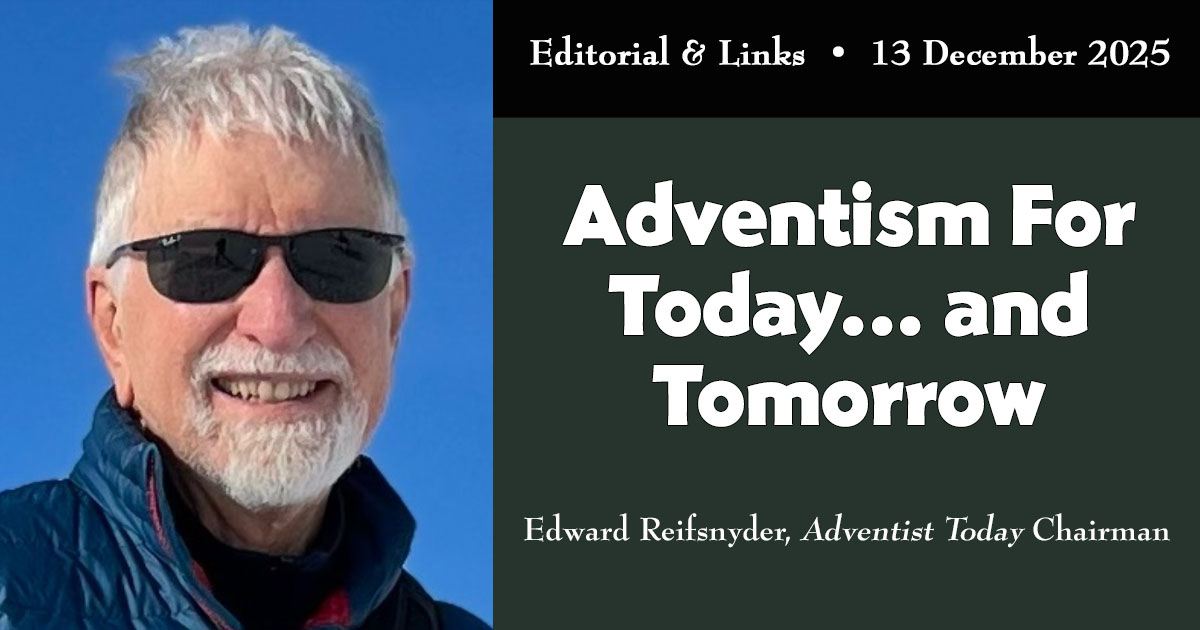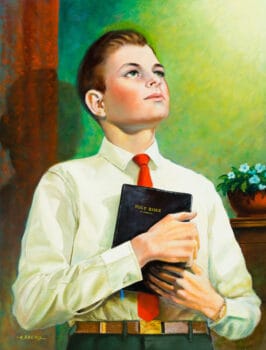If you believe Christ will return, and soon, comment "HOPE" because we have hope even when bad news comes. Even when we attend funerals, face illness, and experience hardship, He's coming. We have this hope! Source: https://www.youtube.com/shorts/IyTCITKpi50
Sunday: All Came to Pass
Daily Lesson for Sunday 14th of December 2025
In Joshua 21:43-45, what picture does the book paint of God? How do these words apply not only to the historical Promised Land but also to the reality of our salvation (2 Timothy 2:11-13)?
These verses constitute the climax of the book and its theological summary. They highlight one of the major themes of the whole book: the covenant faithfulness of Yahweh, who keeps His promises and fulfills His oaths. This short section also summarizes the entire content of the book so far. Joshua 21:43 speaks of the allocation and settlement of the land (Joshua 13:1-33; Joshua 14:1-15; Joshua 15:1-63; Joshua 16:1-10; Joshua 17:1-18; Joshua 18:1-28; Joshua 19:1-51; Joshua 20:1-9; Joshua 21:1-45), while Joshua 21:44 refers to victories won over the enemies and control gained over the land (Joshua 1:1-18; Joshua 2:1-24; Joshua 3:1-17; Joshua 4:1-24; Joshua 5:1-15; Joshua 6:1-27; Joshua 7:1-26; Joshua 8:1-35; Joshua 9:1-27; Joshua 10:1-43; Joshua 11:1-23; Joshua 12:1-24). All this retrospective is viewed through the prism of God’s faithfulness. The Israelites must always remember that they can never claim the victories over their enemies or the land as their inheritance—except through God’s loyalty to His given word.
He gave “all the land” (Joshua 21:43, NKJV, emphasis supplied), delivered “all their enemies into their hand” (Joshua 21:44, NKJV, emphasis supplied), and according to “all that He had sworn” (Joshua 21:44, NKJV, emphasis supplied), “all came to pass” (Joshua 21:45, NKJV, emphasis supplied). The repeated use of the word kol, “all,” six times in three verses (Joshua 21:43-45), emphasizes once again the truth that the land is the gift of Yahweh, and Israel can take no credit for receiving it. It was the Lord who swore to “give” the land and who “had given” their enemies into their hands.
All Israel’s success has to be attributed solely to God’s divine initiative and trustworthiness. This is equally true concerning our salvation: “For by grace you have been saved through faith. And this is not your own doing; it is the gift of God, not a result of works, so that no one may boast” (Ephesians 2:8-9, ESV).
Indeed, emphasizing God’s faithfulness, Paul also wrote: “The saying is trustworthy, for: If we have died with him, we will also live with him; if we endure, we will also reign with him; if we deny him, he also will deny us; if we are faithless, he remains faithful—for he cannot deny himself” (2 Timothy 2:11-13, ESV).
|
How does God’s faithfulness in keeping His promises give us confidence that none of His promises for the future will fail? (See 1 Corinthians 10:13 and 2 Corinthians 1:18-20.) |
 (0)
(0)Adventism for Today… and Tomorrow

For 50 years, progressive Adventism has been most notable for its investigation, research, critique, and deconstruction. But making note of the problems isn’t enough. We at Adventist Today believe it is time for progressive Adventism to move on, which means envisioning a positive potential future for our beloved church—a vision of Adventism for today and tomorrow. At our November […] Source: https://atoday.org/adventism-for-today-and-tomorrow/
“He Looked Beyond My Fault” by Maggie Garnier
"He Looked Beyond My Fault" is a soul-stirring reminder of God’s mercy—how He sees past our failures and loves us still. With deep emotion and clarity, Maggie Garnier delivers this timeless song of grace, declaring that God's forgiveness reaches far beyond what we deserve. 🎶 This powerful performance from the General Conference Session is a testimony of unearned grace. Press play and be reminded that where we see our flaws, God sees someone worth redeeming. SUBSCRIBE to the official Seventh-day Adventist Church channel: https://www.youtube.com/@AdventistOrgChurch 🌐 Visit: https://adventist.org Find us on social media by following the links below: Facebook: https://www.facebook.com/TheAdventistChurch Twitter: https://x.com/adventistchurch Instagram: https://www.instagram.com/adventistchurch Source: https://www.youtube.com/watch?v=ucEQYZ_sWyg
God First: Your Daily Prayer Meeting #1214
Bible verse of the day: Ephesians 6:18—"And pray in the Spirit on all occasions with all kinds of prayers and requests. With this in mind, be alert and always keep on praying for all the Lord's people." Welcome to our Daily Prayer Meeting! This is a safe space where you are seen, heard, and prayed for. Start your day in God's presence—every day at 8AM ET, we share a short devotional from God's Word and lift your prayer requests to Him. You're not alone! Our prayer team is here to intercede with you and for you. Whether you need prayer, celebrate a breakthrough, or start your day with Jesus, you're in the right place. Share your prayer requests or testimonies of praise here: https://wkf.ms/3DBuapQ Engage with us in the comments:
• How can we pray for you today?
• Where are you watching from?
• What are you thankful for? How has God answered your prayers? Let’s grow together in faith, hope, and love—one prayer at a time. Don’t forget to subscribe and turn on notifications so you never miss a prayer. 🔔 Share this video with someone who needs hope, or tag a loved one who needs encouragement today. Today’s Message: Pr. Steve Rundu The Seventh-day Adventist Church has been an established denomination since 1863. It is a global Christian family with over 21 million members who hold the Bible as the ultimate authority. We are believers committed to helping people understand the Bible to find freedom, healing, and hope in Jesus.
Want to learn more about the Seventh-day Adventist Church? Visit our website at: https://www.adventist.org/ Find us on social media by following the links below:
Facebook:
https://www.facebook.com/theadventistchurch
Instagram:
https://www.instagram.com/adventistchurch
Twitter/X: https://twitter.com/adventistchurch 👉 Want more prayer moments? Watch our full playlist of daily prayer videos here: https://youtube.com/playlist?list=PL-k2Gb-DBYo–V8axD7iFUL6TFEckrhxv&si=vIljgfwrSZN6iJR2 GodFirst, DailyPrayer, PrayerMeeting, ChristianPrayer, MorningDevotional, HopeInJesus, BibleVerseOfTheDay, PrayerRequest, FaithCommunity, SeventhDayAdventist Source: https://www.youtube.com/watch?v=BYmtm8oOUEc
- « Previous Page
- 1
- …
- 194
- 195
- 196
- 197
- 198
- …
- 8287
- Next Page »

